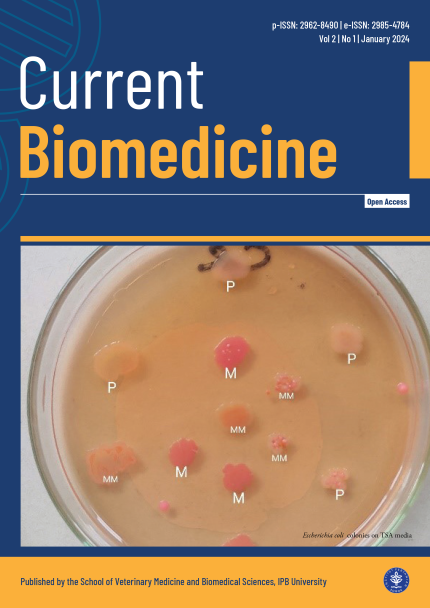Synergistic antibacterial activity of Jicama (Pachyrhizus erosus L.) seed extract against Pseudomonas aeruginosa based on bioautography
Abstract
Background: A 70% ethanol extract of jicama seeds has been reported to have antibacterial activity against Pseudomonas aeruginosa. Phytochemical tests of the extract have identified alkaloids, flavonoids, saponins, and tannins. However, the compounds responsible for its antibacterial effects against P. aeruginosa have not yet been studied. Objective: This study was conducted to determine the class of chemical compounds responsible for the antibacterial activity against P. aeruginosa. Methods: The antibacterial activity against P. aeruginosa was studied using the minimum bactericidal concentration (MBC) of the jicama seed extract at concentrations of 6, 10, 14, 18, 22, 26, 30, and 34% in liquid and solid Nutrient Agar media, the wide inhibitory zone (WIZ) using the Kirby Bauer method, and the retention factor (Rf) of the extract using thin-layer chromatography (TLC)-bioautography. Results: The study results showed that the jicama seed extract had an MBC value of 26%, and the best WIZ value in the extract was 5.68 mm at concentration of 34%. The Rf value in the extract at concentration of 34% which showed antibacterial activity against P. aeruginosa was 0.812, 0.750, 0.675, 0.625, and 0.787 of each compound group identified as flavonoids, tannins, quinones, alkaloids, and triterpenoids. The WIZ value of each compound was lower than the WIZ value of the extract. Conclusion: Based on the Rf data, the antibacterial effect of jicama seed extract against P. aeruginosa is likely the result of a synergistic interaction between the chemical compounds contained therein.













